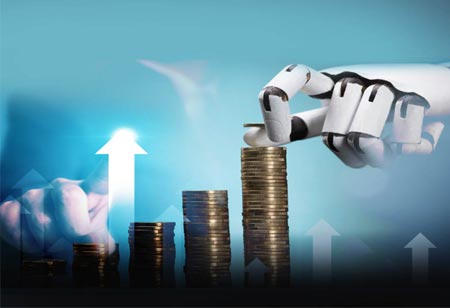Thank you for Subscribing to Healthcare Business Review Weekly Brief
Be first to read the latest tech news, Industry Leader's Insights, and CIO interviews of medium and large enterprises exclusively from Healthcare Business Review
Advancing Biotechnology with Robotics and AI in Cell Culture
Robotics and AI are two transformative technologies that have revolutionized the landscape of cell culture, unlocking new potentials and accelerating scientific discoveries.

By
Healthcare Business Review | Monday, April 22, 2024
Stay ahead of the industry with exclusive feature stories on the top companies, expert insights and the latest news delivered straight to your inbox. Subscribe today.
Cell culture is a cornerstone for studying cellular behavior, disease mechanisms, and drug development.
FREMONT, CA: Robotics and AI are two transformative technologies that have revolutionized the landscape of cell culture, unlocking new potentials and accelerating scientific discoveries. Its importance is unparalleled as a foundational technique across various disciplines, including pharmaceuticals, regenerative medicine, and basic research. The traditional manual approach to cell culture is labor-intensive, time-consuming, and prone to variability, limiting its scalability and reproducibility. Robotic systems have significantly streamlined and automated the cell culture, offering precise control over critical parameters like temperature, humidity, pH, and nutrient supply.
The systems are equipped with robotic arms capable of achieving intricate tasks with high precision and reproducibility, minimizing human error and variability. Robotic cell culture systems enhance efficiency, throughput, and data quality by automating routine tasks such as media exchange, cell seeding, and sample analysis, allowing researchers to focus on higher-level experimental design and data interpretation. Robotics in cell culture has enabled the development of high-throughput screening platforms, facilitating the rapid testing of thousands of compounds for drug discovery and toxicity assessment.
Integrated robotic systems can systematically culture cells in multi-well plates, dose compounds with precision, and analyze cellular responses, enabling the identification of promising drug candidates and accelerating the drug development pipeline. The capability is particularly valuable in the search for novel therapeutics for complex diseases such as cancer, neurodegenerative disorders, and infectious diseases. AI algorithms have become indispensable tools for optimizing cell culture protocols, predicting cellular behavior, and extracting meaningful insights from vast datasets.
ML algorithms trained on experimental data can discern complex patterns and correlations, guiding researchers to refine culture conditions, predict cell growth trajectories, and optimize bioprocess parameters.






